In a special bonus episode, I speak with Bill Gurley of Benchmark about his big bets investing early in now-common names like Uber, Zillow, Grubhub, OpenTable and others, plus his new book, “Runnin’ Down a Dream: How to Thrive in a Career You Actually Love“.
He explains that the early days of venture capital were organized more like a law firm or accounting shop; Benchmark created a unique, team-based approach. Gurley credits the huge success Benchmark enjoyed to this structure.
A transcript of our conversation is available below.
You can stream and download our full conversation, including any podcast extras, on Apple Podcasts, Spotify, YouTube (audio), and Bloomberg. All of our earlier podcasts on your favorite pod hosts can be found here.
Be sure to check out our Masters in Business next week with Ed Perks, president of Franklin Advisers and chief investment officer of Franklin Income Investors. He serves as lead portfolio manager of Franklin Income Fund, as well as Franklin Managed Income Fund. He is a member of the Franklin Templeton executive committee, a small group of the company’s top leaders responsible for shaping the firm’s overall strategy.
Transcript:
Announcer: Bloomberg Audio Studios, podcasts, radio News. This is Masters in Business with Barry Ritholtz on Bloomberg Radio.
Barry Ritholtz: This week on the podcast, what can I say, another banger. Bill Gurley of Benchmark Capital. Legendary VC, early investor in Uber, Zillow, OpenTable, GrubHub, Nextdoor, Instagram, Twitter. The list just goes on and on and on. What a fascinating career filled with insights, not only about venture investing, but about building a career that you love. I thought this conversation was fascinating and I think you will also, with no further ado, my conversation with Benchmark’s Bill Gurley.
Barry Ritholtz: Before we get into the book, which I found very interesting and your whole career. Let’s start with your background. You get a bachelor’s in computer science from the University of Florida. And then an MBA from UT Austin. What was the original career plan?
Bill Gurley: So I fell in love with computers at a young age. And many people that get to Silicon Valley, you hear that common refrain. I had a Commodore Vic 20 that would plug into your television and it didn’t have solid state memory, so you’d type programs in, but when you turned it off, done, they were done. You had to start over. Anyway, I fell in love with programming as many people do, and just amazed that you could create things, you know?
Bill Gurley: And so that was my undergrad degree. I worked for two and change years at Compaq Computer Corporation, using those skills and discovered that that wasn’t gonna be my long-term path.
Barry Ritholtz: You said you were exceedingly bored at what looked like on paper a dream job. Explain.
Bill Gurley: Well, back then Compaq was a leader in the personal computer business, and we would release one PC and then usually around an Intel generation. You would reach the next PC. And so the, we started on the third project. That was a lot like the second and a lot like the first, and I asked myself a question. I asked myself the question, is this what I want to be doing 30 years from now? And in any organization there’s someone that’s a lifer, that you can ask yourself, is that what I want? And with no judgment towards people that do that. But it became very clear that that wasn’t for me. And this would be particularly interesting for your audience ’cause it’s an investment crowd. At home at night, I had One Up on Wall Street by Peter Lynch. And I had opened a Prodigy account, which was this precursor to AOL and I was starting to get really interested in stocks. I had bought the Value Line. You remember this thing?
Barry Ritholtz: Oh, sure. Came the big notebook with the one pagers, the updates and the three ring binders.
Bill Gurley: Exactly. And like a whole shelf of alphabetical. And one thing I’d really encourage people to think about is, what are you doing in your free time? And maybe, is there a clue that that should actually be what you do full time? And so this thing was itching at me.
Barry Ritholtz: So first gig in finance, was that Deutsche Bank?
Bill Gurley: No, it was Credit Suisse First Boston. So I, while I was at the University of Texas MBA program, I thought about venture, but it seemed very hard to get towards. I liked technology, I liked disruption, I liked programming. And it seemed hard to get at, but at that time when you get to business school, some young adults like to pretend they’re financiers and so they read Fortune, Forbes, the Wall Street Journal and the Atrium, you know, as if. And I would read the tech articles and there was a team at Goldman Sachs on the sell side. And the sell side I think was more kind of held in higher regards back then. And this team with Dan Benton and Rick Sherlund at Goldman got quoted all the time and I said to myself, you know, I really love my corporate strategy class. I love technology. These people get to opine on it and are treated as experts.
Bill Gurley: So I went to, I came here to New York, I knocked on doors cold. I asked that particular team for a meeting. They let me in. I’m a first year at the University of Texas. They let me in and I told all the other research directors, I’ll be in town meeting with those guys. And I got like 10 meetings doing that. And one of those individuals was Al Jackson. And he gave me a shot. And I can remember the first day of orientation, there were like 40 new people from MBA programs and we had to go around and say our name and school and it was what you’d expect, Columbia, Wharton, Harvard.
Barry Ritholtz: But you were the University of Texas. You’re the odd man out for sure.
Bill Gurley: But I’m so grateful to Al for giving me that shot. The sell side analyst job has one trait that is remarkable, which is you immediately get to start talking to CEOs and CFOs and I don’t know of any other job where that just happens right away, right outta school.
Bill Gurley: So the access was amazing. I ended up getting to cover the industry I worked in, the computer industry. I got to know the team at Dell. This story involves our mutual friend Mike Mauboussin. But because of something Mike taught me, I got very bullish on Dell and it was trading at six times earnings ’cause they had had some issues. I think they had a CFO that was doing some currency swap, they had an options, a currency thing that went wrong. And their laptop caught on fire. And both those things happened at the same time.
Bill Gurley: And Mr. Mauboussin had really gotten into ROIC analysis at that time, one of the first people to really get behind it. And he had me read this book Valuation from McKinsey and the Stern Stewart book. And when I ran those ROIC calculations on all the players, Dell was like, it stood up way above everybody. Way above everybody. ‘Cause they were building to individual order. They weren’t building to inventory. The balance sheet was not tied up at all. They had a positive cash conversion cycle. It was unbelievable. You just had to weather the storm and on the other side.
Barry Ritholtz: But that means you’re buying something?
Bill Gurley: Well, we went strong buy because of this ROIC differential that no one was talking about. Michael kindly tweeted about my book the other day and said he taught us some things we didn’t know ourselves about our business. And it was a great run. I mean, that really launched my career. ‘Cause that stock went up a hundred x.
Barry Ritholtz: In the public market. That’s a home run. That’s a venture-like return from a public company. How did you end up at Deutsche Bank from CSFB?
Bill Gurley: I had the same thing happen one night. I was at Park Avenue Plaza on the 36th floor and I was there at like 10 PM as the young people do. And I walked around and the lifers were in the corner offices and I stopped in front of each of their offices and I said, is this what I want to do the rest of my life? And that night when I walked home, I knew it wasn’t.
Barry Ritholtz: You’re out the sell side.
Bill Gurley: But I loved the sell side. I had a great run, getting access to all those people being here in New York, working on Wall Street as a young person, like, it gave me so much energy and excitement. It’s just a different deal. But I knew it was time and I started looking around, I almost took a job with Capital Group in LA who I still hold in immense regard as an investment organization. And Frank Quattrone called me out of the blue. And Frank was leaving Morgan Stanley, he’s the most notable high tech investment banker of all time. And he sat down with me and we had a very candid conversation. He asked me what I wanted to do long term. And I told him, I said, I’ve come to this conclusion. I don’t want to be a sell side analyst anymore. He said, what do you want to do? And I said, I think I want to be a venture capitalist. And he said, this almost sounds too good to be true. He says, come to work for me for a while. Be a sell side analyst a little bit longer. I’ll move you to Silicon Valley. I’ll put you in the epicenter and I’ll introduce you to every venture capitalist that I know. And he knew ’em all.
Barry Ritholtz: Wow. So he was probably the axe on tech IPOs, certainly one of the top three.
Bill Gurley: And so I took that trade. He did everything he said. I only worked for him for 13 months. And in that window we secured the mandate for the lead left position on the Amazon IPO, which turned out to work out pretty okay. And that’s such a great piece of IPO tech history. If you, no one could name who’s lead left on the Amazon IPO and you can go find, I do this frequently. Go look at the S-1 and it’s Deutsche Morgan Grenfell, lead left.
Barry Ritholtz: Wow. So how did you transition from working with Quattrone at Deutsche Bank to Benchmark? If you’re right in the heart of Silicon Valley, he did what he said. He introduced you to every VC.
Bill Gurley: I was taking, so out of that list, I’m taking quarterly meetings with Benchmark where they’re inviting me into their Monday meeting and we’re just chatting about where the industry’s going. He really did what he said.
Barry Ritholtz: But why Benchmark as opposed to Sequoia, Kleiner Perkins? There are dozens.
Bill Gurley: Well, actually my first offer into venture came from Ann Winblad. And I was so eager to get into venture. When the offer came at Hummer Winblad, I said yes. And I didn’t know what I got involved in. The organization was structured like a very traditional firm where the founders made more equity than the young people. And there was also a bit of a power differential where the person that got to dictate how things went were the elder statesmen. Old school lawyer, accountant type structure. All set.
Bill Gurley: And the Benchmark guys had lived within those frameworks and had decided to do something crazy, which was to create an equal partnership where everyone makes the exact same amount of money and everyone has the exact same power within the organization for decision making and there’s no leader. And I can’t tell you what it’s like to have someone from an organization like that reach out to a young person and say, come on and be a part of this versus the traditional one. Be a partner.
Barry Ritholtz: Although I would imagine the whole eat what you kill ethos could be a little intimidating.
Bill Gurley: Well, but here’s the thing. I think at those hierarchical firms, there’s an up or out mentality. So the people at the bottom live in constant fear of what you’re talking about. And they also get sharp elbow to the side. At Benchmark, these founders were gonna split equally whatever I did. And so what I found was the cultural zeitgeist that came out of that structure is one of immense help and support. And so I immediately had four mentors who had been doing this a lot longer than I did, who were in my corner every single day. And then you get to live through bringing other people in. It’s a wonderful recruiting tool to tell someone you’re gonna be equal, but then you win when they win. And those original Benchmark founders who did very well with their eBay and Ariba investment in Fund One, they all participated in the Uber investment that I brought to the table. And today, Eric Vishria has got Cerebras and I’m gonna benefit from that. And it’s a culture that I think is really great for generational change.
Bill Gurley: And when I talked to LPs about what, I mean the LP doesn’t have much they can control, right? They’re trying to decide and the window for how successful a fund is moving from seven years to 15, like you’re getting past, the time you’re gonna turn around and analyze whether an investor’s any good or not, you’re gonna be retiring. And so what you can study is, do you think the organization has elements that will cause it to be able to succeed with generational change? And I think one of the proudest things of just me serving as part of it is that we were able to move from a place where the founders were the ones behind all the winners to where the next generation was.
Barry Ritholtz: So when you joined Benchmark, I think you were relatively, I don’t wanna say a unicorn, but there weren’t a whole lot of public market research folks in the VC world then. Now it seems that it’s a little more common, but were you a little bit of a one-off when you joined?
Bill Gurley: I know a piece of history that’s probably not well known, but Ben Rosen of Sevin Rosen, who’s not a brand you hear much of anymore, and was involved in Compaq. He was actually the chairman of Compaq. He was a semiconductor analyst in the seventies. So he was the first one, and then after me, and kind of at the same time, Danny Rimer was a sell side analyst. Mary Meeker was a sell side analyst. So there were, the weird thing about venture is if you polled people on their background prior to venture, there’s real diversity. There’s like a whole bunch of different pathways. Mike Moritz was a writer.
Barry Ritholtz: I recall that. There’s a handful of us that came that path. Huh. Really interesting.
Barry Ritholtz: Coming up, we continue our conversation with Benchmark’s Bill Gurley, discussing his new book, Running Down a Dream: How to Thrive in a Career You Actually Love. I’m Barry Ritholtz. You’re listening to Masters in Business on Bloomberg Radio.
Barry Ritholtz: I am Barry Ritholtz. You are listening to Masters in Business on Bloomberg Radio. My extra special guest today is Bill Gurley of Benchmark Capital. He has a new book, Running Down a Dream: How to Thrive in a Career You Actually Love. I love the Tom Petty title. What led you to start with that?
Bill Gurley: I put together back when I was super active writing blog posts, I would keep these notes in digital form, but I would start, I’d probably start three or four times as many blog posts as I finished. And so if an idea popped in my head, I’d just write notes down and see if I went back to it. And that was a note. I had read these three biographies of people that were from very different fields that all started on the bottom rung and became remarkably successful in their field. And I noticed a through line between ’em and I just wrote it down the same way. I would figure out how an internet marketplace company might thrive. Like, oh, do this, this, and this.
Bill Gurley: And I got invited one day back to my alma mater to do a speech at Texas Business School, and I asked if I could do this one. And so then I developed it a little more and I put it out there. They put it on YouTube and a few people noticed. And one of those was James Clear, who wrote Atomic Habits. And I don’t wanna make this sound too mushy, but at some point I decided that it was time to declare victory and hang up my boots in venture. And it was a decision. I spent 25 years in venture capital. I loved every minute of it. It was my dream job, but I wanted to start doing other things. And there’s a great book by Arthur Brooks, From Strength to Strength, that talks about people that reached that stage in life. And it really spoke to me and I decided to push this book out.
Bill Gurley: And two people had really gotten behind me and pushed me to do that. One of ’em was Tony Fadell, who invented the iPod and was head of engineering on the iPhone.
Barry Ritholtz: I knew I recognized that name from, he had a book called Build. He also started Nest.
Bill Gurley: And he told me that it was the best thing that he’d ever done. And that’s kind of hard to believe. And then I was talking to Danny Meyer last night, the famous New York restaurateur and founder of Shake Shack. And he said the same thing. He said the book Setting the Table was more rewarding for him than anything he had done. And I asked him, why is that? And he told a story, this is a very long answer, I’m sorry. He told a story about being in Africa at a hotel and one of the local workers in this restaurant he was in told him, look at how I’m doing the eggs. And it was a technique out of his book Setting the Table.
Barry Ritholtz: Oh, really?
Bill Gurley: And the reach, his argument was the reach that he could get in sharing what he knew via a book was exponential compared to what he could do just opening another restaurant. And that was powerful. Anyway, once again, it sounds maybe a little too mushy or sacky, but if I’d have written a book about being a VC or an investor, there’s only a handful of people it might have touched, and I felt very compelled to share this because I thought it could have a bigger, much bigger reach. Because it’s not just about a career. It could be applied to career in investing, but it’s a much broader book about doing what you love.
Barry Ritholtz: So let’s talk about some of the items from the book, starting with, there’s a stat, I think it’s in the introduction. It’s not even the first chapter. Six in ten people say they’d do something differently if they could start over. That’s a horrifying statistic.
Bill Gurley: Well, we were studying this Gallup poll that said like 53% of people are quiet quitting at work. They’re not engaged or don’t consider themselves engaged at work. And I think other people have echoed those types of thoughts. And on a whim, I was working with a co-writer and researcher. We did a Survey Monkey survey and asked this question, if you could start over again, would you do something different? That one came out seven in ten.
Barry Ritholtz: Wow.
Bill Gurley: We hired Wharton to do an official academic review, and that one came out six in ten. There’s a book by Daniel Pink about regrets called The Power of Regrets, and he says that the regrets of inaction, the stone unturned, the path not taken weigh in our brain. We ruminate far more on those than regrets of action. So we let ourselves off the hook for making mistakes. We’re pretty good at getting past them and moving on. But the thing we never tried, it really eats at us.
Barry Ritholtz: I forget the name of the book. They interviewed a bunch of 90-year-old people talking about their life regrets. And it’s never the commissions or errors, it’s always the things they never did. ‘Cause in your mind, you imagine an entire different pathway.
Bill Gurley: Exactly. And that’s the regret of, and one of the catchphrases we use in the book, which came from my partner Kevin Harvey’s, life is a use it or lose it proposition.
Barry Ritholtz: For sure. Absolutely. So the idea of career regret, you lay out a variety of principles to avoid it, starting with obsessive curiosity. Dive into that. Tell us about obsessive curiosity.
Bill Gurley: All of the people that we studied and what we expanded it from the presentation I gave at the school, and probably read a hundred biographies, but every single one of these people are obsessive learners in their field. And you and I are both, I already mentioned, but you and I are both friends and a fan of Michael Mauboussin. And I don’t think there’s a human that reads more books on finance than Mike. It’s a race between him and Warren Buffett. And he fully synthesizes them. One cheat code if you want to chase a dream job in investing is you could just start by reading Michael’s books because he’s read all the other books and it’d be a great place to start.
Bill Gurley: But I literally have a couple of chapters in here based on his work. That’s ’cause he’s just so seminal in so many ways. And in the book you’ll see examples of Danny Meyer, the restaurateur, Bob Dylan, the folk singer. There’s this part we uncovered. Most people, I’m sorry that the new movie missed this, but you get more of it if you go back to the Scorsese documentary. Some people called him a music expeditionary, so he studied music at a level. No one would know this if they just listened to Dylan, but he is obsessive about learning about the art. And early on they called him a mimic because he was able to parrot every other artist that he studied. And even today, he did a podcast for a while where he went through histories of music. His newer book goes through 50 songs that he thinks changed the world.
Bill Gurley: This study element is just inherent in so many of these people. And what I love about, first of all, I think it is a defining factor of success. Does continuous learning in your field come easy to you? And it’s a great test of whether you’re pointing in the right direction or not, because if it feels grindy to do that, you’re not in the right place.
Barry Ritholtz: That’s right. You need to try some other things. You’re gonna laugh. Every morning I take a quick look at a bunch of headlines and run through and I saw something this morning that said there’s a high correlation between people who read books and longevity. So all these folks chasing down blood treatments and all these longevity things, it turns out just read a couple of books a month, you’ll extend your lifespan. How about that?
Bill Gurley: Really, really interesting.
Barry Ritholtz: So you mentioned Danny Meyer, you mentioned Bob Dylan. Sam Hinkie, the coach is another one. What, when I first got the book, I’m always a little nervous when I get a book and I’m like, oh, this is gonna be preachy and tedious, but it wasn’t. It’s interesting and narrative driven. What led you to the storytelling format of all these people’s life experiences as opposed to the more traditional?
Bill Gurley: Your listeners can’t tell because we’re not on video, but I’m smiling, grinning ear to ear, and I’m so glad you noticed that. So there was quite a bit of intention in that. Just as when I was a computer scientist, I was at home trading stocks as an investor. I developed on the side somehow, I guess through this act of reading, just a super appreciation for really well written nonfiction.
Barry Ritholtz: And there’s actually two books back of the book. You have chapters on all your favorite books.
Bill Gurley: There’s a book called The New Journalism and a follow-up called The New New Journalism. Tom Wolfe put together the first one, the second one is writers people would know more today, that studied the craft of great nonfiction writing. Like that’s what that book’s about. And it covers Lewis and Krakauer and Gladwell and all the books that have done extremely well. And there is a through line in there that storytelling is something that people really love to read. Morgan Housel was on this podcast called Why We Write. And he went on and on about that technique, and I had discovered it as well. And so my co-writer actually does most of his work for The Atlantic.
Bill Gurley: And so every, the book’s divided into two halves. There’s profiles and there’s principles. And if you look at the table of contents, we interleave them, which was a technique I borrowed actually from Michael Dell’s book, where he interleaved two stories in the same book. And the idea there was, there were two things behind that. One, I thought the book would be more readable if it did that. A lot of the books that are the cornerstones of the career category, like Designing Your Life and What Color Is Your Parachute, are structured more like a textbook. And I just felt that if it were more readable, it would be more approachable and more consumable for more people. And then I also, and this goes back to what Morgan Housel was pushing, reading the stories is, I think, puts it in your memory a little bit better than just reading a principle alone.
Barry Ritholtz: Oh, we are geared to remember narratives as opposed to data or dry principles. The intentionality behind telling stories makes it very readable as opposed to, let’s be honest. What Color’s Your Parachute has been in print for, I don’t know, 57 years. Still in the top 10 in the category, but it’s kind of a slog to ply through. It’s like reading a textbook.
Bill Gurley: And when is the test?
Barry Ritholtz: So I have a couple more questions about the book. The book seems to be very much a bit of a pushback to modern hustle culture. Was that on purpose or was it really, Hey, you know, it’s not a grind if you’re really enjoying it and you should listen to your own body’s signals that I’m really hating this, but I’m grinding it out.
Bill Gurley: One fortunate thing in putting this book together is, and I think this is really just easier in the modern world, we were able to connect with some true, amazing leaders in this field. So we ended up talking to Adam Grant and Daniel Pink and Angela Duckworth and people that have really made a name for themselves in this field. We stumbled across a podcast Angela Duckworth had done recently where she was looking back 10 years after on Grit, the book. And the original thesis of grit was you need passion and perseverance. And she said if she were gonna rewrite it, she would maybe instead of 50/50, say two thirds, one third passion. And her fear was that we’ve taught young adults how to grind. And I feel that the evolution of the college matriculation conveyor belt has been negative. I feel like it’s become an arms race to get these kids into the hardest schools. The schools aren’t expanding capacity. So they just keep getting harder and harder to get into. And the kids get taught to fill their schedule with programming so that that resume can be perfect and they’re not given the time to really explore and find, and many people don’t really know what their dream job is. And some of ’em might not find it till they’re 30 or 40, and that’s okay too. But we’ve pushed and pushed and pushed and many of ’em have risen to the occasion of doing all that work, but they graduate from college exhausted.
Barry Ritholtz: You describe this whole section, step off the conveyor belt. I was just watching something about Norway. This tiny little country, yet it dominates the Winter Olympics despite lots of other cold weather countries. And their secret is all these kids are encouraged to join sports as kids. But unlike here, there’s no trophies, there’s no competition. It’s do what you want for as long as you want, as long as it’s interesting. And every one of their medalists say, yeah, I was a slalom skier till I was 14, and then I switched to whatever. But I had the background and it was great. There was no pressure. You could do what you want.
Bill Gurley: It turns out letting kids play is a great strategy. And I’m not the first one to make that point. And there’s a chapter in Coddling of the American Mind titled The Decline of Play. And I do wonder if it’s harder to find your obsession and find this thing that you’re totally fascinated with if you’re stuck in this game not of your own making. And you know, it’s funny. The phone, which is always within reach, means that you’re never bored. But boredom is what leads to creative output, and I’m wondering what this generation is gonna look like down the road.
Barry Ritholtz: Well, hopefully some of ’em will be able to get ahold of this book and find their way to a better place.
Barry Ritholtz: Coming up, we continue our conversation with Benchmark’s Bill Gurley talking about the state of venture capital today. I’m Barry Ritholtz. You’re listening to Masters in Business.
Barry Ritholtz: I am Barry Ritholtz. You are listening to Masters in Business on Bloomberg Radio. My extra special guest this week is Bill Gurley, his new book, Running Down a Dream: How to Thrive in a Career You Actually Love is out today. He’s also a member of Benchmark Capital, a legendary venture firm. Let’s talk a little bit about some of my favorite Benchmark investments that I seem to use constantly. I think it’s ironic we’re recording this the day after this giant blizzard hit New York. The trains aren’t running. The buses aren’t running. I took an Uber here, so kind of full circle. You are the guy who brought Uber to the public attention, funded it and walked it through the IPO. Zillow I use all the time. OpenTable I have to use a few times a week. Tell us about these giant consumer-facing companies that became wildly successful.
Bill Gurley: So I stumbled upon, and this actually will involve Mike Mauboussin again. Him and I were working together in the research department at CSFB and we became enamored. We became book sharers. And that’s been true for 30 years. But we became enamored with this book Complexity by Mitchell Waldrop about the rise of the Santa Fe Institute.
Barry Ritholtz: Which I know he’s involved in.
Bill Gurley: Yeah, I am as well. And Bill Miller of Legg Mason. Long, long time involvement. Carl Kawaja from Capital Group just joined the board. So there’s a handful of investors that get a lot out of it. But the original book highlighted this guy named Brian Arthur and Brian had done work on what he called Increasing Returns. And they published one of his pieces in Harvard Business Review. It was ironically co-written by Cormac McCarthy, but no one knew it at the time, and that’s come out since then.
Bill Gurley: Anyway, Increasing Returns was this argument that if you have the right pieces in place, your company will accelerate towards winner take all. And when I read that and I started looking at what was capable with the internet and possible, this notion really was prominent in my mind. And I can remember, I think the first one of those that we invested in was OpenTable. And I remember my partners pushing back and saying, selling computer hardware to a restaurant is a crappy business. And SMBs, how we ever scale it. And the idea was, well, if you’ve got all the restaurants on, the consumers would only want to go there. And if you got all the consumers on, the restaurants would feel obligated to be in that place. So there’s no reason to have multiple of these things. And that was a thesis when we made the original bet. We lived through the .com burst and had to grow after that. But it did play out that way. And the network effects were present. And then from there, I started thinking about what other industries would that apply to? And that’s what led to all these other things.
Barry Ritholtz: So OpenTable leads to Uber, leads to Zillow. Is that the progression?
Bill Gurley: Yes, absolutely.
Barry Ritholtz: ‘Cause you know, it’s hard to argue that those three are pretty indispensable. What about others that stand out? Nextdoor, GrubHub? What else is in that group?
Bill Gurley: Yeah, and Stitch Fix did really well. And in the, you know, also the firm, while I was there, invested in Twitter and Snapchat and so many different companies in the social space, Instagram. I don’t know how we did ’em all.
Barry Ritholtz: Well, you didn’t do ’em all because, first of all, VCs in general do something that I’m very much enthralled with. They’re kind of proud of their failures. Which the rest of finance is sort of terrified of. The idea that, hey, we invested in this, it went to zero. We skipped this, we missed this. A lot of VCs on their websites have, here’s what we blew. Here’s what didn’t work out. You very famously missed Google. What were the lessons from that experience?
Bill Gurley: Well, the, I think the biggest takeaway, which leads to what you just described, Barry, is that when you miss a big winner, it’s very asymmetric to the counterfactual, right? If we invest $12 million and it goes to zero, you lose one time your money. If you fail to invest $12 million in Google, you miss out on a thousand x. And so over the years at Benchmark, I would tell you that I don’t recall very many discussions at all about, oh, that one went to zero. You orient, my partner Bruce came up with this phrase, what could go right? You orient yourself towards the failure being missing out on a huge winner. And so we changed how we, the kind of things that we studied as failure that you want to correct.
Barry Ritholtz: And how different is that an experience and a process from making investments in existing legacy public companies?
Bill Gurley: Well, I don’t think you have the potential for the thousand x’s often, right? And so the thousand x can make up for eight losses that you never heard of. And so it just forces you if you’re in that big game hunting mindset to really, really focus on could this work as opposed to could it fail and only be obsessed about that part. And I think it’s different. I think, and because we are oriented to absorb failure at a level that you can’t do in the public market.
Barry Ritholtz: So you mentioned it’s one in ten. Is it that much or is it closer to one or two in a hundred? For the big, big outliers?
Bill Gurley: Of course, it’s what you’re saying. But one in a hundred could return the fund. You gotta find that one. I mean, think about that. That’s a really weird dynamic to be out there doing.
Barry Ritholtz: So I’m legally obligated to ask you about AI and artificial intelligence. How do you look at this sector? What do you think is gonna happen?
Bill Gurley: One last thing before you go to AI. I think that the venture industry is constantly evolving. And today’s venture industry looks nothing like what I practiced, which looks nothing like what the generation before me saw. It has gotten way more competitive and the best investors have become aware of power laws where these big winners go on forever, and they become these trillion dollar companies. And as a result, they’re very comfortable now betting it forward. And so we have firms like Thrive and Coatue and Altimeter are willing to put big, big checks into private companies in a way they never would have in the past, making the bet that that compounding law is going to keep playing out.
Barry Ritholtz: Huh. So everything’s changed. So that raised a really interesting issue. Benchmark has stayed kind of small. Early, nimble, while a lot of other VCs really beefed up. What is it about avoiding becoming a mega fund, chasing late stage growth that was so appealing to you guys?
Bill Gurley: So one, I do think we’ve reached the point of the industrialization of the venture capital world, and these funds and these assets under management are starting to parallel large PE firms. And I think one, it’s very hard to stay focused on the artisan craft of identifying early opportunities if you’re running this thing that has to look after, it’s hard to get excited about a $7 million investment if you’re managing billions and writing $500 million checks. And you’re earning, by the way, a management fee and a venture carry on the 500. Why would you? You just get oriented differently. And second, I think it’ll be very difficult for those firms that get that big to have IRR that is anything other than industry at best.
Barry Ritholtz: So you’ve been pretty loud about valuation discipline and the risk of having a high burn rate. Is that a function of looking at earlier stage companies or is it just simply an analyst discipline of looking at companies?
Bill Gurley: I think it’s the latter. I think it’s reading all those books, like studying Buffett, Graham and Dodd. Like I brought to the venture capital industry a study of investing history that most VCs never have. And I think it was differentiating for me. Some people call me the VC Cassandra, but that’s okay.
Barry Ritholtz: So you’re, I would think, I think of you as an elder statesman in the VC community. But you’re hinting at something. I’m gonna ask explicitly. What rules have too many venture capitalists not learned that you think would behoove them and their firm to go back to some basics and focus in on that’ll help both their returns, their LPs and their funded companies?
Bill Gurley: The thing I would say to answer that, Barry, is that it’s always going to the, Howard Marks wrote this great piece a long time ago who highlighted that the way you make really good money is to have contrarian, non-consensus predictions that are right versus wrong. And right now in AI, these big waves create so much wealth that I think for a moment when the waves happen, you have to move past that and realize that the wave could be so big that you can just plow in. But eventually Howard’s gonna be right and eventually the market is gonna become oversaturated. There’s this great book by Carlota Perez where she says that bubbles always follow real waves because you attract speculators and charlatans. And people would want you to say, if you use the word bubble, you don’t believe in AI, but it’s the opposite. I believe that it’s real, and that’s why it’s attracting the charlatans. And eventually we’ll go over the top. We always do.
Barry Ritholtz: Every new technology comes with this void of people that are deeply enmeshed in it, knowledgeable and articulate. And so there’s just a rush to fill that space and they get rich quick. And when people are getting rich quick, fools rush in. I love the Bill Bernstein quote. We use the word guru because it’s too difficult to spell charlatan, and it’s really very much true.
Barry Ritholtz: So let’s stick with the concept of variant perspective. Another phrase I really like and part of the job of being both contrarian and right. What do you think is a non-consensus view you’re willing to articulate today that’s gonna look obvious 10 years from now, but right now very non-consensus?
Bill Gurley: The thing that pops in my head just ’cause people have been talking about it the past few days. I think this paper that came out yesterday is just completely over the top. And the notion that every tech company in the world needs to have their terminal value set to zero is probably not true.
Barry Ritholtz: I love the barbell. Either AI is a bubble that is not gonna do anything for us, or it’s gonna be so effective, everybody’s gonna lose their job. Isn’t there anything in the middle? Hey, maybe this is a useful technology.
Bill Gurley: Well, look, if Buffett’s the one that said be fearful when others are greedy and greedy when others are fearful. So if AI fear is the topic of the day, the contrarian thing to do would be to try and figure out where, what price points you believe represent true value. And I’m not saying we’re there yet, but hey, since the zero interest rate period, high tech stocks have been rather expensive from a PE standpoint for what, seven years. Now they’re on sale.
Barry Ritholtz: All of a sudden Buffett says you wanna be a net buyer. So we should all be excited. People don’t, I heard last year that the magnificent seven, all this market concentration is gonna kill us. And yet, last year, only two of the seven beat the S&P 500. So this sale process started a year ago, and then so far this year it’s pretty clear the rally is broadening out. It’s going to other stocks. We continue to see sort of a rotating sell off as these AI fears hit different companies. It’s gonna be really interesting to see what’s gonna get cheap and attractive and fear driven going forward.
Bill Gurley: Yes, I agree. That’s where you should be looking.
Barry Ritholtz: Before I get to my favorite questions, I have one other sort of non-consensus question to ask you. What do you think people are either not talking about or thinking about that they really should be? What topic is getting overlooked, but should really be much more front and center than it is?
Bill Gurley: Everything but AI. I mean, I’ve never been in a scenario where everyone’s so all in on this one thing. And it is important. I think the best way to protect yourself against AI disruption is to run at it and be the person in your field that knows the most about it. But boy, everything else is just not being discussed.
Barry Ritholtz: Huh. Everything else. So let’s jump to our speed round. Our favorite questions. Let’s do it. Tell us about your early mentors who helped shape your career.
Bill Gurley: Well, I already mentioned Mauboussin. It was kind of more of a peer, but still I was so lucky. Al Jackson gave me that first job on Wall Street. When I showed up there, there was a gentleman named Charlie Wolf. I don’t know if you’ve ever met him.
Barry Ritholtz: Of course, Charlie Wolf. Charlie Wolf was one of the few guys bullish on Apple when the first iMacs came out and the iPod and the street did not understand Apple. And he’s the only guy who did.
Bill Gurley: And Charlie was a force of nature. People loved him. He was a professor, simultaneous professor at Columbia and sell side analyst on the street. And I got to hang out with him.
Barry Ritholtz: That’s a name I haven’t heard in a while. He passed away, unfortunately.
Bill Gurley: Unfortunately.
Barry Ritholtz: You mentioned a lot of books. There’s a whole chapter at the back about various books you and other people recommend. What are you reading currently? What’s interesting?
Bill Gurley: I’m reading an unreleased copy of David Epstein’s new book called Inside the Box. He did Range, which I adored. And anyway, Inside the Box, where he’s talking about how constraints drive creativity and it’s really been, what I love is when a book makes me think differently and about other things, and I’ve already, he and I have already started to have a text thread about taking it even further beyond what his intention was, which is awesome.
Barry Ritholtz: That description immediately makes me think of the scene from North by Northwest. I don’t know if he mentions this in the book, I having not seen it. The Hollywood MPAA code did not allow movies to show a man and a woman getting into bed. So it’s Cary Grant and I forgot which leading lady is the woman. And they’re on a train and they’re not allowed to both be seen in bed and then cut to the image of the long train driving into a tunnel, all the subtlety of a sledgehammer. That was fine, but the two of them sitting on, that’s the constraint that forced Hitchcock to say, oh, you’re not gonna let me do this, hold my beer.
Bill Gurley: And I had mentioned earlier, Tony Fadell, he would tell me that Steve Jobs for the iPhone, he didn’t come in and dictate every little thing, but he would say, I want it this thin. And by just saying that, rather than how thin can you make it, he forces people to think creatively about, and you come up with more ideation and innovation than without the constraint.
Barry Ritholtz: Huh. Really, really interesting. What are you streaming these days? What’s keeping you entertained?
Bill Gurley: I just watched Severance and I, my wife just started it without me, and I’m annoyed.
Barry Ritholtz: How’d you like it?
Bill Gurley: I loved it. Really, actually, I really did.
Barry Ritholtz: That’s on the queue. She was so good on Better Call Saul. But this is her shining, she already won the Emmy for it. But the implications from AI are really clever.
Bill Gurley: Well, I’ll, it’s definitely on my list to check out.
Barry Ritholtz: So my next two questions are kind of answered in the book, so essentially it’ll be a summation. What sort of advice would you give to a recent college grad interested in a career in either venture capital or finance?
Bill Gurley: Well, in finance, this is gonna be so redundant, I apologize. I would tell them to go read Michael Mauboussin’s five books, because Mike has read every single, Mike’s the most read financial mind that I know of. And he synthesized everything he read in those books. And so it would be like starting on second base. I talk about in the book that you should study the history of your field. And if studying the history of your field’s uninteresting, once again, I think you’re in the wrong place. And so that would be it. Like start with the masters, Graham and Dodd, and read the Buffett letters. It’s all out there. It’s so wonderful. There’s never been a better time to learn in the history of the world because it’s all available.
Barry Ritholtz: I’m so surprised more people don’t talk about The Success Equation because the idea of the impact of luck, and he talks about investing, business and sports. We underestimate luck tremendously, and it’s such a great book.
Bill Gurley: But you can improve your luck. Increase the surface area of luck is the phrase that always sticks out. And there’s a principle in the book called Go to the Epicenter, where we recommend if you can at all, go practice where everyone else is practicing, precisely to impact that equation.
Barry Ritholtz: And our final question, what do you know about the world of venture investing today that might’ve been useful 25 years ago when you were first starting?
Bill Gurley: It probably goes into the thing we already drilled into. Like had I been more open-minded to the question what could go right and pursued the Google investment. Maybe I retire earlier. Maybe we’re not talking about the book.
Barry Ritholtz: I have a feeling you would not have retired early. You would’ve kept going ’cause you seem to really love what you did.
Bill Gurley: I did. No doubt.
Barry Ritholtz: So Bill, thank you so much for doing this in the middle.
Bill Gurley: Can I leave you one last thing?
Barry Ritholtz: Yeah, absolutely.
Bill Gurley: The book was written for the hero that would make this journey, but there are people in every hero’s life that act as advisors and counselors as parents, and there’s a whole bunch of people that shape your career process. I think they’re gonna get a lot out of this book, even though it’s not written to them, because I think there’s this overwhelming, well-intentioned instinct to put the economic stability of a child’s life at the front. And I’m not sure it’s the right answer.
Barry Ritholtz: Huh. Coming up, we continue our conversation with Benchmark’s Bill Gurley. I’m Barry Ritholtz. You are listening to Masters in Business on Bloomberg Radio.
Barry Ritholtz: I am Barry Ritholtz. You are listening to Masters in Business on Bloomberg Radio. My extra special guest today is Bill Gurley of Benchmark Capital. So Benchmark has really put together an extraordinary track record. Uber, OpenTable, Zillow, Stitch Fix, eBay, go down the list. What is it about Benchmark’s model that was so unique and really produced better outcomes than so many VCs have over the years?
Bill Gurley: Yeah, I really, and I have to give the credit to the founders because they’re the ones that put this structure together. But this equal partnership structure has a cultural dynamic that encourages immense amount of support from the partnership. I certainly didn’t have a fear of failure or anything like that. And also an element of peer pressure. So the pressure’s not a pressure of do this or you’re out. It’s a pressure of my partners putting up these wins and I’m sharing equally, I need to do that myself. And so it’s more the way maybe someone on a sports team might do well and encourage other people on the team to do well as well. And for me, and I won’t say that this is necessarily true for everybody else, for me, that culture was a perfect fit. I enjoy having the camaraderie and the support of other people. I wouldn’t enjoy being a solo GP and making decisions on my own.
Bill Gurley: There’s some great work that’s been done on group dynamics and group analysis. And one of the really clever things is the group tends to know the weaknesses of the individual better than the individual themselves. And if you’re aware of that, you can use that to help your group decision making. So I just adored every bit of it. I love that the firm is tilted towards thinking about the work as a craft or an artisan. And I find that to be true of almost everyone I profile in the book. If you care about nuance and detail, it’s typically because you’re treating the art of what you do in a craft-like fashion.
Barry Ritholtz: Huh. Really, really interesting. And I think that’s what Benchmark does. Venture capital as a team sport. Do you wanna draw any parallel to playing ball? Anything that comes into that?
Bill Gurley: Well, I just, I mean, I think it could go beyond playing ball, but do you create a team culture where greatness is gonna be expected as an output? And I bring that up ’cause you mentioned Sam Hinkie in the book. I think the best coaches try and foster that. It’s not just about your individual performance. You’re a team.
Bill Gurley: And people, I think, should be more fascinated with what Bezos did at Amazon and Elon has done across multiple companies because the individual, everyone knows that Bezos and Elon are innovative and independent thinkers and contrarians, but how do they scale a company to hundreds of thousands of people? How do you take that mindset and put systems in place where it’s propagated all the way down? And I don’t think enough work is going into figuring out what they do.
Barry Ritholtz: I’ll give you another interesting example. Satya Nadella probably led the, either the first, probably from a market cap creation standpoint, the best turnaround of all time.
Bill Gurley: No doubt about that. Absolutely true.
Barry Ritholtz: I mean maybe Steve Jobs, but I don’t think, 20 years earlier. Those two. But that one almost went down to the studs on the remodel. If Gates didn’t save Apple, that would’ve been it. They would’ve been done.
Bill Gurley: So Steve was starting with more bare metal. Satya had to turn this bigger ship. And he claims what he did is he told everyone we’re gonna go from being a know-it-all to a learn-it-all culture. And man, if that one heuristic is what was the key to this? Kudos to him. And what a miraculously simple insight and then kudos to him on making it effective. Like pushing it through the organization.
Barry Ritholtz: I bet they had to push a lot of people out too. Well, if you look at the culture between him and Ballmer, very different personality. Very different approach. You can make the case that Nadella was the anti-Ballmer. And during Ballmer’s reign, it wasn’t great returns, although a lot of people didn’t have great returns in the two thousands. So it’s a little bit of both.
Barry Ritholtz: I have another question. I kind of suspect I know the answer. So you’ve spent decades not only picking business models, but founders, boards, addressable markets. What’s the single hardest question you wrestle with? Aside from what could go right.
Bill Gurley: The thing that pops in my mind, Barry, is this notion of TAM, total addressable market. And I think the investor community gets really stuck on that one and are not open-minded enough about what’s possible, especially if the technology becomes disruptive. There’s a famous interplay between me and this professor at NYU around Uber. He published this piece that said Uber would never be worth more than $4 billion. And I wrote one of my favorite blog posts ever titled How to Miss By a Mile, where I took apart his analysis and tried to, well, I had an unfair advantage. He said that the market Uber was attacking was a taxi market, and he used that as the thesis for his analysis. I already knew in San Francisco that Uber was 20x bigger than the taxi market. He didn’t know that. So once you have that piece of knowledge, it’s kind of an unfair game. But it gets at like, the product became so much better than what the taxi market offered you. And it immediately became, and in the long run will be a replacement for car ownership, which could allow for many, many years of growth.
Barry Ritholtz: Especially if self-driving taxis become a thing. But by the way, huge disadvantage analyzing Uber in New York City in the early 2010s. ‘Cause it was a monopoly. Taxis were a monopoly.
Bill Gurley: Not only that, in the report of his, which a summary version got public, but I found the background version. He admits that he had never ridden Uber and only taken taxis.
Barry Ritholtz: So I think being in New York gave you the exact wrong mindset. The first time you get into an Uber, you’re like, damn it. I wish I was an early investor in that. I remember being a beta tester of Google and sending an email and saying, Hey, can I invest in this company? They’re like, we are good. And then the first time I got into an Uber, it’s like, oh, this makes perfect sense. On your phone, it’s mobile, it knows where you are. It was so obvious after the fact. And credit to Dara for taking it from 40 billion to, he touched 200. So that’s fantastic. 200 billion versus four is, that’s what a closed-minded TAM analysis would get you. You get way off.
Barry Ritholtz: So I’m legally obligated to ask you about artificial intelligence. How are you looking at the opportunities in this space? I kind of think we addressed that. Do I really need to ask that?
Bill Gurley: Yeah, okay. So look, I think there are people in the venture community that would tell you this is the biggest disruption wave they’ve ever seen. And there’s no doubt that venture does extremely well around these dislocations, and there’s great books like The Innovator’s Dilemma that talk about why, but the mobile wave, the PC wave, the client server wave, all these things birthed really big companies, some of them doing the exact same thing. So there were four companies in the CRM space before Salesforce came along, but the SaaS wave allowed them to steal all that market cap that was in those companies.
Barry Ritholtz: And is that a case of second mouse gets the cheese?
Bill Gurley: No, I just think it’s that these waves, if they are, it’s very hard for an incumbent to be at the front of the wave. It is kind of different here with AI because there’s certainly an obsession within the Mag Seven about AI and what it might do to them. But anyway, VCs tend to do extremely well when these waves come, and so everyone’s all in. And look, it’s very disruptive. It’s very different than anything we’ve seen before. I would encourage people once again to really dive in and ask yourself, no matter what field you’re in, what is AI capable of here and to be that person in your organization that has the answer to that question.
Barry Ritholtz: You know, it’s fascinating that all of the big hyperscalers are spending tens of billions, hundreds of billions building out these systems. Apple’s writing a check to Google to put Gemini into Siri, which was early and terrible. Now it’s late and terrible. I’m hoping Gemini, which has been really good, turns Siri into something useful. How do you think of that sort of approach of saying, it’s cheaper to buy than build?
Bill Gurley: I have a couple different answers to this, which I think are quite interesting. First of all, the Mag Seven formerly were creating, I don’t know, three, 400 billion in cash flow and 2 trillion in revenue. Almost 400 billion in profits. But now almost all of that has been exhausted into CapEx. And Mike Mauboussin and I would have long arguments about what that meant from a valuation perspective. He sloughs it off and says they can stop tomorrow. And then the cash flow will come back.
Barry Ritholtz: Fair.
Bill Gurley: I argue if you’re trying to build a DCF, now all of a sudden you have to make a decision about whether that would happen or not, and whether there’s a return on this CapEx investment. But the second thing I wanted to say is I have found over the years, maybe this is another contrarian thing, that big companies think there’s some kind of safety net in making an investment in a new disruptor. And so here we have Microsoft and Google and Amazon making investments in these foundational model companies. And it’s not clear to me that that is actually a good hedge because I think both of those companies, OpenAI and Anthropic, now have escape velocity. I don’t think they’re dependent on the partner anymore. And it hearkens back in my brain to IBM letting Microsoft put the OS inside the PC and we sell hardware. What good is software gonna be?
Barry Ritholtz: All right. One last quote. You said there’s a mess coming from zombie unicorns that all have stale marks in private portfolios. I’m a huge fan of Cliff Asness’s volatility laundering. All the private ownership that doesn’t get updated or marked to market. What does that reckoning look like when these marks finally show up in the real economy?
Bill Gurley: So this is probably a three hour conversation that I will try and do in a very short form. There is a very famous investor, I’d call him an endowment manager named David Swensen.
Barry Ritholtz: Of course, Yale model.
Bill Gurley: That is the Yale model. And David said that everyone should be more invested in privates and famously had returns that were spectacular. But as someone who’s a historian in my space, that was 40 years ago when no one was doing it. It was a white space. So I think, absolutely, great valuations, great opportunities. I think the Swensen mimic effect has now played out. And I think personally that most of the endowments and foundations in the US are over invested in private, both PE and venture. And I think that the way the industry’s structured, and this would require a longer conversation, there’s no incentive for the operators inside of the endowments and foundations to get the paper marks right. And there’s no incentive for the GPs to get the paper marks right. And based on talking to people that do this for a living every day, I suspect both the venture paper marks and the PE paper marks and the real estate paper marks are all too high. And if we had had a liquidity run, like if an endowment tax had happened, you might get to that sooner. I think we’re going to, it’s gonna take forever to unwind.
Barry Ritholtz: You ask, kind of like, when’s the day of reckoning? I don’t even know. So I read over the past few months, Harvard and Yale are both trying to sell, they did some secondaries, right? So they’re doing some selling. That’s a sign.
Bill Gurley: That’s a sign.
Barry Ritholtz: Right. And now you see the whole issue with Blue Owl, with some marks and Boaz Weinstein making an offer to buy assets at a substantially discounted price. Are these one-offs or is this perhaps?
Bill Gurley: No, I think that’s maybe the first signs of this correcting. But once again, the only thing that could really lead to a faster correction is if there was a liquidity crisis within the endowment, and we briefly saw a threat of that when the president threatened to start taxing endowments and other things. There’s other articles you can find about debt products inside of foundations, which hint at the fact that you’re not getting liquidity from your privates and you don’t want to get over allocated in them, so you have to borrow money.
Barry Ritholtz: Well, all crises, financial crises at the underlying is leverage and debt. The other thing that to me was a big warning sign, I’m curious as to your thoughts. The whole democratization and hey, we’re gonna move private credit and private equity to people’s 401ks. That to me, smells like someone rang a bell.
Bill Gurley: I’m so with you on that, Barry. And I think you’re gonna watch the same thing happen with venture because as I talked about earlier where they’re trying to keep these companies private forever, they’re gonna have the same liquidity problem and I think they’re gonna run outta money ’cause they’ve gotten these things so big. So watch for someone to lobby to put 401k money into early stage venture firms as well. It’s already begun.
Barry Ritholtz: And it’s gonna be an issue. I fear the Swensen thing is going to have this, like you said, when he did it, he was the only one doing it and it was contrarian. Back to the Howard Marks thing, right? The fact that everyone followed him and the time it’s gonna take for that to play out and get fixed is forever.
Barry Ritholtz: Thank you Bill, for being so generous with your time. I’ve been speaking with Bill Gurley of Benchmark Capital and author of the book Running Down a Dream: How to Thrive in a Career You Actually Love. If you enjoy this conversation, well be sure and check out any of the 600 and change we’ve done over the past 12 years. You can find those at iTunes, Spotify, Bloomberg, YouTube, wherever you get your favorite podcasts. I would be remiss if I didn’t thank the crack staff that helps me produce these conversations each week. Alexis Noriega is my audio producer, Anna Luke is my podcast producer. I’m Barry Ritholtz. You’ve been listening to Masters in Business on Bloomberg Radio.
~~~
The post MiB: Bill Gurley, Benchmark appeared first on The Big Picture.



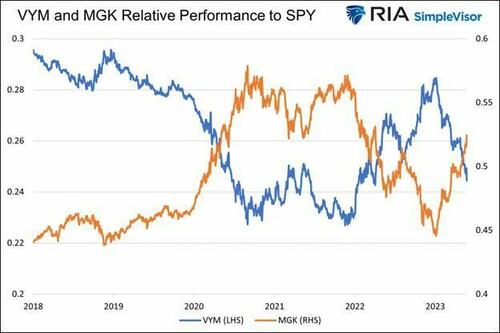
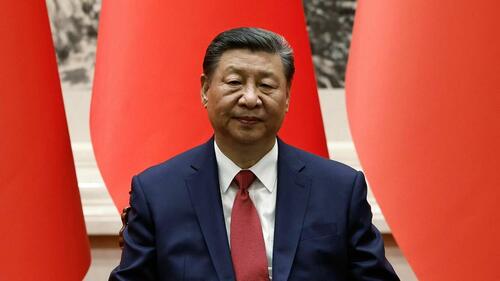
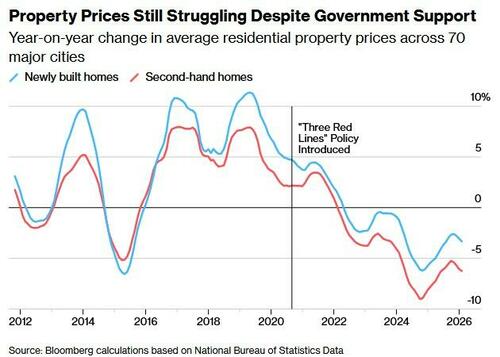
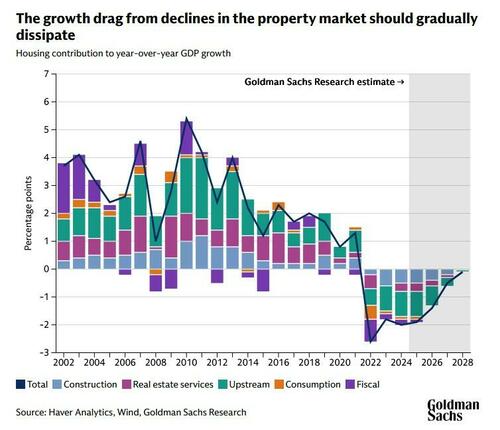
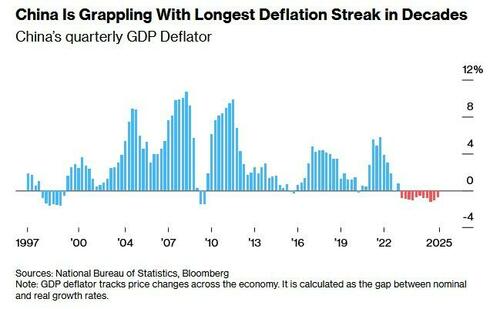

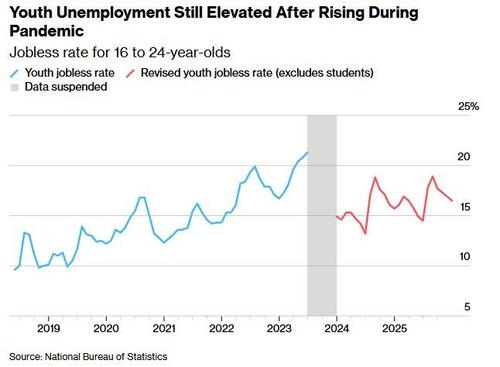
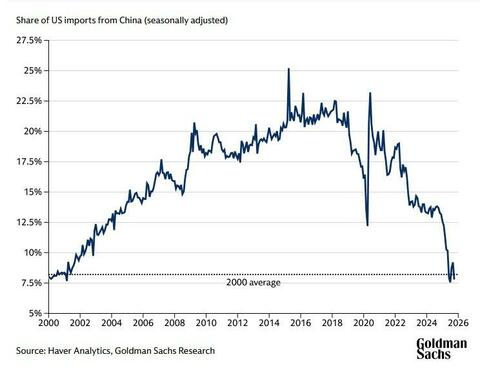









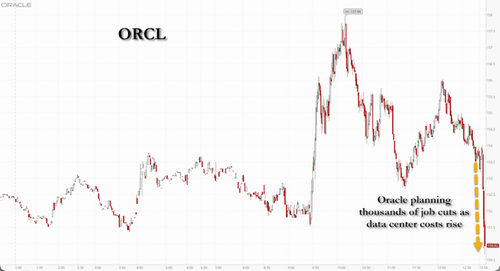
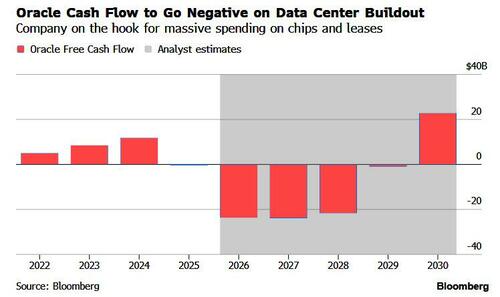
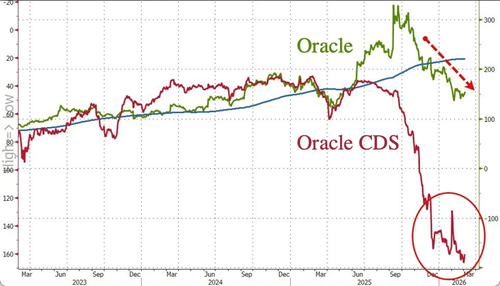
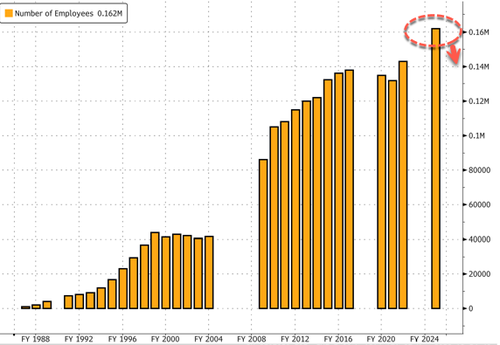
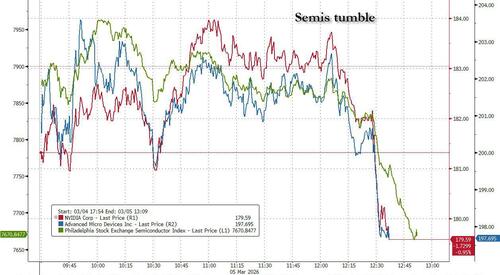
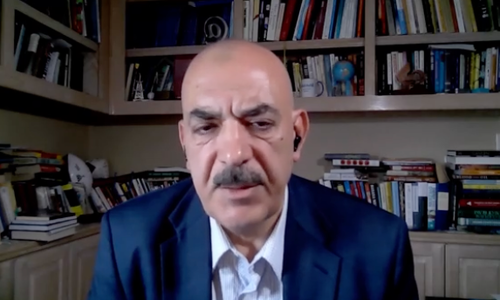
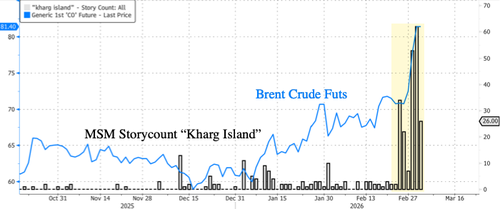
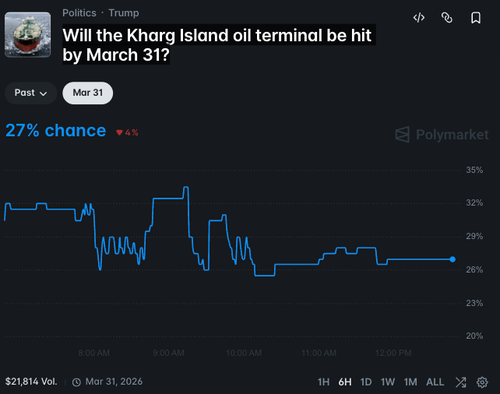








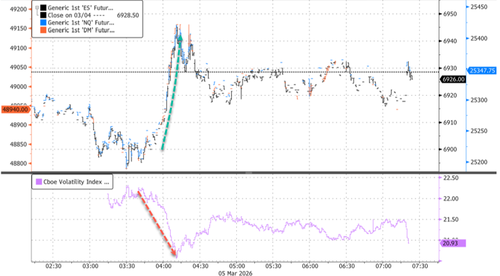


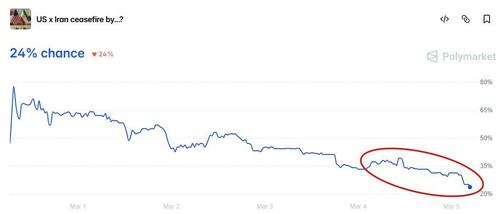
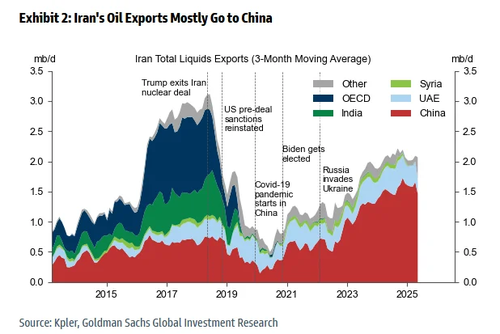
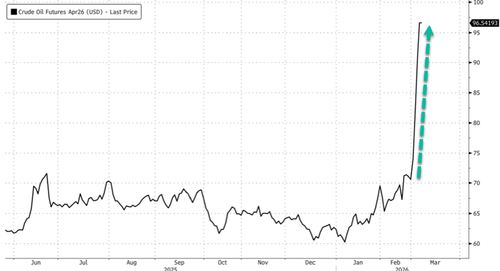


Recent comments